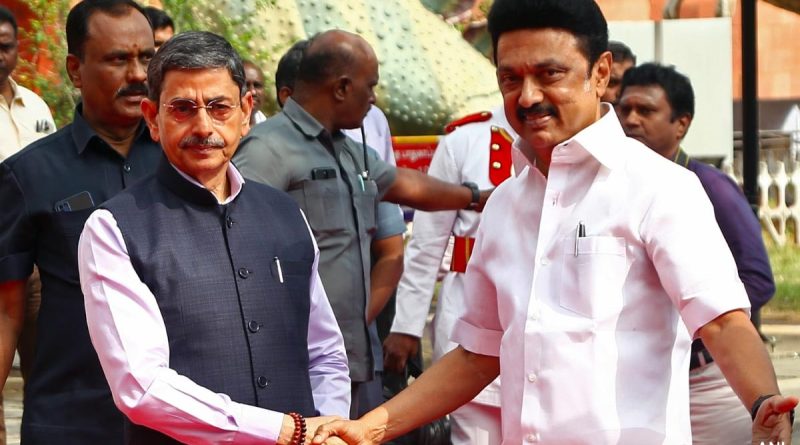Tamil Nadu Government and Governor Receive Warning from Top Court
Supreme Court Warns Tamil Nadu Governor and DMK Over Appointment Dispute
The ongoing squabble between Tamil Nadu Governor RN Ravi and the ruling DMK party regarding the appointment of vice-chancellors for state-run universities has caught the attention of the Supreme Court. The court issued a warning to both parties to resolve their differences, which have been a source of contention for years.
Governor Ravi’s Authority in Question
One of the main points of contention between Governor Ravi and the DMK is the Governor’s insistence on appointing vice-chancellors in his capacity as the honorary chancellor of universities under the Tamil Nadu government. The disagreement extends to the Governor’s authority to appoint personnel to the state’s Public Service Commission, further complicating the issue.
Legal Battle Over Vice-Chancellor Appointments
Last year, the state government took the matter to court after Governor Ravi formed a committee to appoint vice-chancellors for prominent universities in Tamil Nadu. The state deemed this move as “illegal” and proceeded to reconstitute the committee, removing members from the University Grants Commission, a body under the Union Education Ministry. Governor Ravi later withdrew the search committees he had established, adding fuel to the ongoing dispute.
Political Accusations and Delayed Bills
The DMK accused Governor Ravi, appointed by the Bharatiya Janata Party, of intentionally stalling the clearance of crucial bills, including those passed by the previous AIADMK-led government. The ruling party alleged that Governor Ravi’s actions were undermining the elected administration and hindering the state’s progress. The court questioned the delay in passing these bills, highlighting the need for timely action in governance.
Legal Interpretation and Governor’s Role
During a court hearing, the Supreme Court delved into the constitutional provisions regarding a Governor’s role in bill clearance. The court emphasized that a Governor’s options under Article 200 of the Constitution are limited to approving bills, withholding assent, or referring them to the President. The Solicitor General representing Governor Ravi argued that the Governor plays a significant role in the legislative process and is not merely a technical supervisor.
Resolution Urged by the Supreme Court
The Supreme Court urged both Tamil Nadu Governor RN Ravi and the DMK to resolve their differences before the next hearing. The court indicated its willingness to intervene if the parties fail to reach a resolution on their own. The ongoing dispute over the appointment of vice-chancellors and clearance of bills underscores the need for effective governance and collaboration between the state government and the Governor’s office.

